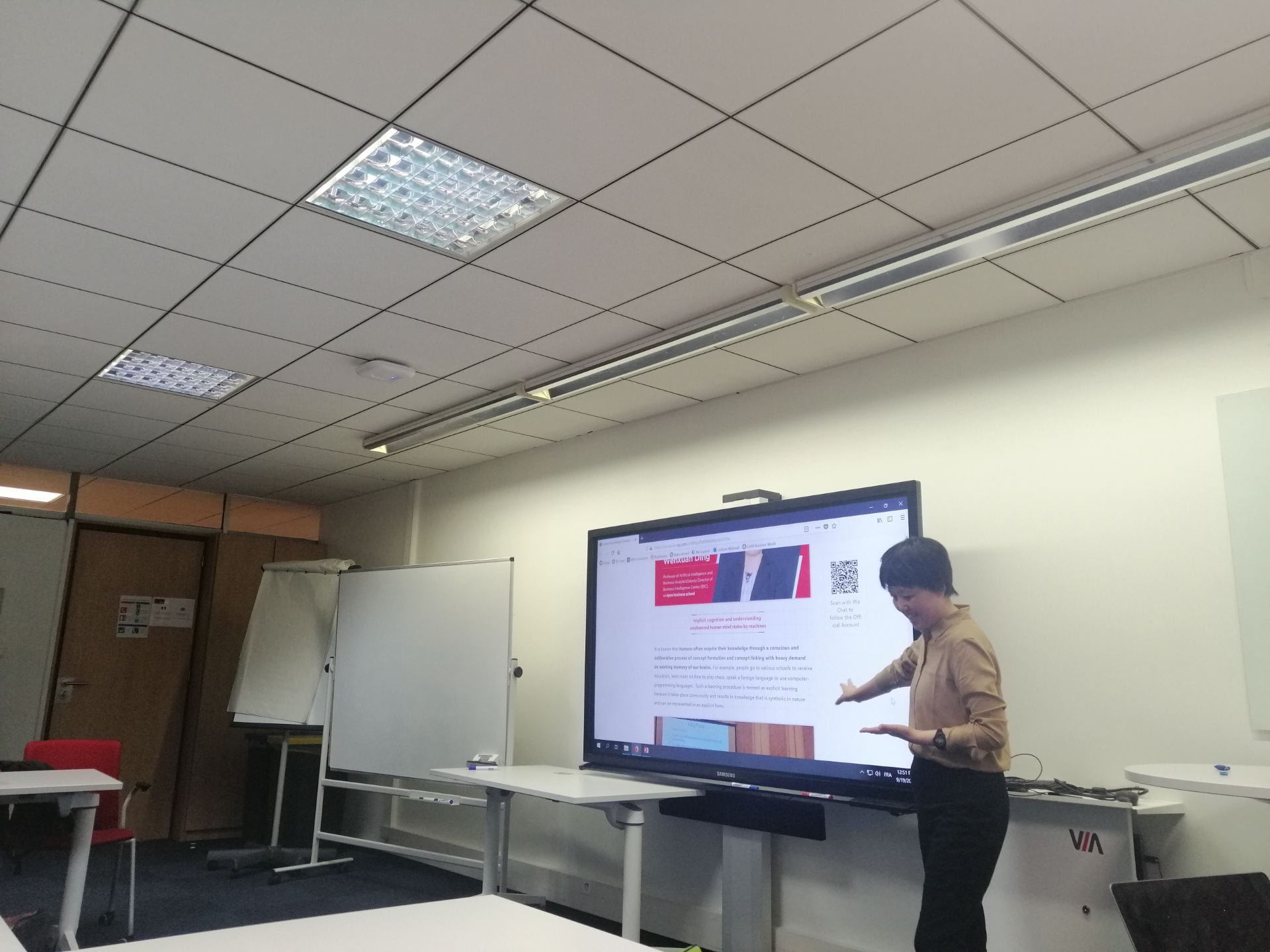Artificial Intelligence and machine learning methods to create value and improve decision-making

Wednesday, September 19, 2019 – 12:00-14:00, Room 1110 – Building A
“Artificial Intelligence and machine learning methods to create value and improve decision-making”
by Amy Venxuan DING and Ajay KUMAR, Professor emlyon business school
AGENDA
12:00 – Presentation AIM Institute Renaud Champion, Executive Director AIM Institute emlyon business school
12:10 – Presentation of the activities of the Research Center 2019-2020 Margherita Pagani, Director AIM Research Center on Artificial Intelligence in Value Creation emlyon business school
12:20 – Treat Everyone Fairly: Enabling an Unbiased and Explainable Algorithmic Decision Making Amy Wenxuan Ding – Professor emlyon (Shanghai campus)
13:00 – Big Data Preprocessing for Machine Learning: Opportunities and Challenges Ajay Kumar – AIM Assistant Professor
13:40-14:00 – Debate and conclusion
“Treat Everyone Fairly: Enabling an Unbiased and Explainable Algorithmic Decision Making” by Prof. Amy Wenxuan Ding – emlyon business school
Driven by big data and rapid improvements in computing power, many firms and organizations are interested in deploying various AI and machine learning methods to create values and improve their decision-making. Although conventional machine learning methods have shown a great social impact and a good performance in many application areas, the European Union’s new General Data Protection Regulation raises emerging concerns on the potential discriminatory and unexplainable decisions generated by conventional machine leaning models. Thus, how to eliminate discrimination and produce trans-parent and explainable decision-making becomes an urgent and important challenge in AI and machine learning communities.
There are two fundamental issues in current machine learning methods: First, they rely on aggregate-level learning using a data sample consisting of different sub-jects. Thus, sample selection bias may occur, resulting in biased decisions when a subject is not in the same population as those in the training sample. Second, the learning processes are not theory-driven and focus on correlations among feature variables in data samples rather than their causal effects. Therefore, the produced outcomes are un-interpretable.
This paper presents a novel theory-based individual dynamic learning model to overcome discrimination and emphasize on a causal inference to enable explanation. The model (1) uses limited data from each individual subject without employing other subjects’ data to overcome the discrimination issue; and (2) learns the underlying data generating process from individual subject to identify the corresponding causality mechanism to achieve a fair and interpretable decision. Using a real-world credit and risk assessment as the context, we empirically test our model and demonstrate a greater performance comparing to conventional supervised learning models and decision tree models in terms of fairness, transparency, and accuracy.

Amy Wenxuan DING is Full Professor in the Shanghai campus. Amy obtained PhD in Cognitive Science and Information Technology from carnegie Mellon University, USA. She conducts forefront theoretical and empirical research on human level artificial intelligence (AI), scientific discovery, and their applications in business analytics, digital innovatin and marketing, and mobile health. Her research has appeared in various top tier journals including Information Systems Research, Journal of the Academy of Marketing Science, Decision Support Systems, Springer Computational Intelligence Series, the Prpoceedings of Association for Advancement of Artificial Intelligence, Defense & Security Analysis, Journal of Defense Modeling and Simulation, Oxford Journal of Management Mathematics, and Safety Science. One of her recent research paper received the Best Paper Award in Human-Computer InteractionTrack at the prestigious International Conference in Information Systems in 2016. She was on the faculty at Indiana University, University of Illinois, Carnegie Mellon University, Cheung Kong Graduate School of Business, and National University of Singapore.
“Big Data Preprocessing for Machine Learning: Opportunities and Challenges” by Ajay Kumar – AIM Assistant professor – emlyon business school

Ajay KUMAR is Assistant Professor in the AIM Research Center. Ajay’s experties lies in helping companies leverage data-science, machine learning, Ai and business analytics for competitive advantage and to understand of how consumers, firms, industries and societies are being reshaped by the big data and business analytics revolution.His research and teaching interests are in data and text mining, decision support systems, knowledge management, business intelligence and entreprise modeling. He worked as post doctoral scientist in business analytics & information systems domain at Massachusetts Institute of Technology and as postdoctoral fellow at Harvard Business School, Harvard University. He received his PhD degree from IIT Delhi where he worked to develop the big-data driven predictive models in telecom & manufacturing sectors. His research has been published in several high impact journals including Industrial marketing Management, International Journal of Production Research, Telematics & Informatics, Journal of Computational Data Science, among others. He has rich industrial experience and his past experience as an “Analytics Specialist/Data Scientist” at Harvard, IIT Delhi, Accenture Management Consulting, STMicroelectronics and IBM Research Lab, confirmed his intention to develop his research skills and goals in business analytics & information systems domain.
